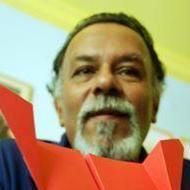
Mahim, Mumbai, India - 400016.
Details verified of Rajendra Grewal✕
 Identity
Identity
 Education
Education
Know how UrbanPro verifies Tutor details
Identity is verified based on matching the details uploaded by the Tutor with government databases.



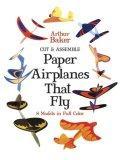
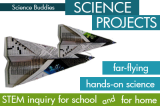
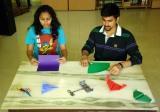
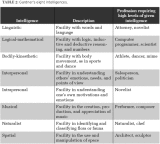
+4 more
English
Hindi
![]() Bombay University 1977
Bombay University 1977
Master of Science (M.Sc.)
Mahim, Mumbai, India - 400016
![]() Email Verified
Email Verified
![]() Facebook Verified
Facebook Verified
Report this Profile
Is this listing inaccurate or duplicate? Any other problem?
Please tell us about the problem and we will fix it.
Class Location
![]() Online (video chat via skype, google hangout etc)
Online (video chat via skype, google hangout etc)
![]() Student's Home
Student's Home
![]() Tutor's Home
Tutor's Home
Years of Experience in Art and Craft classes
13
Teaching Experience in detail in Art and Craft classes
RE: THE PAPER PLANE- STRUCTURE & FEES The Paper Plane Company conducts a FOUR - LEVEL continuous learn-by-doing workshop that through structured sessions, allows the student to progress from millimeter accuracy paper planes to micron precision CAD/CAM/CAE gliders: “AeroGami” LEVEL ONE: FOLD N FLY paper planes = per student /4 planes “AeroDynamix” Computer designed and manufactured + laser-cut airfoils of MICRON PRECISION LEVEL TWO: laser-cut CAD/CAM/CAE = “TRAINER” glider LEVEL THREE: laser-cut COMPETITION GLIDER balsa frame LEVEL FOUR: laser-cut SP 804 Racing Glider Register 4 workshops = Rs 2,000/- only And become an ace aviator ! TEN students per session, register TODAY! On Saturday & Sunday morning = ONE HOUR workshops= 4 sessions >>>> 9 am to 10 am at Shivaji Park.
Class Location
![]() Online (video chat via skype, google hangout etc)
Online (video chat via skype, google hangout etc)
![]() Student's Home
Student's Home
![]() Tutor's Home
Tutor's Home
Years of Experience in Business Analysis Training Classes
10
Teaching Experience in detail in Business Analysis Training Classes
“Plane Sailing” > ++++ Creativity ++++ Team Building ++++ Energy ++++ Fun A “Whole Brain” Workshop using both Head and Hands Preparation: FOUR A4 sheets per participant. Running Time: TWO Hours. Environment: Large Conference Room. Teams: At least Two teams, not more than TEN participants in each TEAM. Each Team is given 4 patterns and paper for each member. They have about 30 minutes to fold the paper into the 4 provided patterns. They have the next 20 minutes to fly each plane. That is the time to trim and tune the paper plane for straight and level flight. The team member A, who achieves the longest distance, in a straight line, then has a shoot-out with his opponent B. The winner is the one whose plane flies the farthest. FEEDBACK: It is quite possible that each team has several planes that might be winners. One lesson of this exercise is that that there isn’t one right answer to a problem – but you have be comfortable with choosing an option and getting on with the workshop, rather than continuing to dither over the possible outcomes. OUTCOME: This is a particularly high-energy time-out, and an excellent one for logical thinking and spatial visualization. Choosing a plane to represent each participant without seeing them fly is another important variation of the workshop, both to emphasize the probability of more than one right answer and to point out the risk inherent in many decisions. VARIATIONS: Don’t let them try out the planes before the competition. The second exercise is where all the plane models compete, but try the selective approach first. To consider a more energy-filled session take the participants outdoors to do this exercise. If there is a convenient garden, gallery or large balcony from which the planes can be launched from, so much the better to determine the different flight paths of Darts, Gliders and Stunt planes. Keep flying! Rajendra Grewal The Paper Plane Guy # 98696 55838
Class Location
![]() Online (video chat via skype, google hangout etc)
Online (video chat via skype, google hangout etc)
![]() Student's Home
Student's Home
![]() Tutor's Home
Tutor's Home
Years of Experience in Career Growth & Advancement Training
10
Teaching Experience in detail in Career Growth & Advancement Training
Paper Planes August 2013 Paper Planes is a business simulation that enables participants to experience the powerful effects of system reengineering and process improvement, helping participants make the critical connection between systems thinking, total quality and customer orientation. In Paper Planes participants are on a team employed by a plane manufacturing company with the opportunity to sell as many planes as they can manufacture to specific quality standards. Each participant plays an individual role in the production process, i.e. cutter, gluer, assembler, inspector, tester, etc. After each of three progressive production runs –first within a Functionally Designed System, then a Group-Designed System, and finally a Continuously Improving System – group members discuss and evaluate efforts measured by production cost, quality, customer satisfaction, delivery time and worker satisfaction. Serial interventions from the company’s customer complicate work redesign and production. Paper Planes is a powerful simulation that: • Creates a realistic environment in which participants can experience the effect systems thinking and collaboration can have on quality and an organization’s success. • Reveals the problems inherent in compartmentalized work processes. • Demonstrates the innovation of continuous improvement and creative solutions. • Reveals the effects of work redesign on cost, quality and overall team productivity. • Demonstrates the difficulties in responding to change when working within the established systems and processes of a Functionally Designed System. • Demonstrates the impact of employee involvement present in a Group Designed System on quality, cost, commitment and morale. • Demonstrates how collaboration and continuous improvement in a continuously Improving System effort can enable significant changes to take place, and how much easier these changes can be implemented and maintained. Paper Planes can be used to: • Improve teamwork by showing how participation affects work ownership. • Develop strategies of successful work redesign and re-engineering. • Improve team ability to identify barriers to success. • Help individuals and teams make the critical connections between systems, quality and customer orientation. Who Should Participate: The Paper Plane teaches valuable project management skills in an active, challenging, fun format. It is ideal for: • Cross-functional Teams (Sales and Manufacturing, for example) • Project Management Training • Engineering, Marketing, and Customer Service • Executive Education • Leadership Development Programs What Participants Learn: • Benefits to team-based change and team building • Problems inherent in compartmentalized work • Structure gives rise to behavior • How various participation strategies affect ownership and commitment • The importance of everyone understanding the big picture • Critical connections between production and customer service and communication • Leadership development and methods for continuous improvement • Positive effects of work redesign on cost and quality • Elements of successful work team building and communication • Barriers to organizational success from not communicating • Insights into creative space and time solutions • Learning as continuous improvement • Team participation requires process • Transferring workshop learning to the workplace How Participants Benefit: • Participants gain first-hand experience in process improvement and the underlying true costs of disorganization and poor communication. • Through learning how to create systems that respond to changing conditions, participants focus on meeting customer needs for total quality, production flexibility, lower pricing, and higher satisfaction. • Through experiencing real-time opportunities to practice communicating customer and supplier changes, participants learn what's important and what affects costing and time. Agenda: 5-7 hours • Welcome and Overview • Briefing: The Aerospace Modeling Process • Production Run #1, followed by debrief and redesign session. • Production Run #2, followed by debrief and redesign session. • Production Run #3. • Debrief on Learning Applications / Examples • Summary and Evaluation Rajendra Grewal
1. Which classes do you teach?
I teach Art and Craft, Business Analysis Training and Career Growth & Advancement Classes.
2. Do you provide a demo class?
Yes, I provide a free demo class.
3. How many years of experience do you have?
I have been teaching for 13 years.
Answered on 26/01/2016 Learn Life Skills Coaching/Career Growth & Advancement
Answered on 26/01/2016 Learn Life Skills Coaching/Career Growth & Advancement
Class Location
![]() Online (video chat via skype, google hangout etc)
Online (video chat via skype, google hangout etc)
![]() Student's Home
Student's Home
![]() Tutor's Home
Tutor's Home
Years of Experience in Art and Craft classes
13
Teaching Experience in detail in Art and Craft classes
RE: THE PAPER PLANE- STRUCTURE & FEES The Paper Plane Company conducts a FOUR - LEVEL continuous learn-by-doing workshop that through structured sessions, allows the student to progress from millimeter accuracy paper planes to micron precision CAD/CAM/CAE gliders: “AeroGami” LEVEL ONE: FOLD N FLY paper planes = per student /4 planes “AeroDynamix” Computer designed and manufactured + laser-cut airfoils of MICRON PRECISION LEVEL TWO: laser-cut CAD/CAM/CAE = “TRAINER” glider LEVEL THREE: laser-cut COMPETITION GLIDER balsa frame LEVEL FOUR: laser-cut SP 804 Racing Glider Register 4 workshops = Rs 2,000/- only And become an ace aviator ! TEN students per session, register TODAY! On Saturday & Sunday morning = ONE HOUR workshops= 4 sessions >>>> 9 am to 10 am at Shivaji Park.
Class Location
![]() Online (video chat via skype, google hangout etc)
Online (video chat via skype, google hangout etc)
![]() Student's Home
Student's Home
![]() Tutor's Home
Tutor's Home
Years of Experience in Business Analysis Training Classes
10
Teaching Experience in detail in Business Analysis Training Classes
“Plane Sailing” > ++++ Creativity ++++ Team Building ++++ Energy ++++ Fun A “Whole Brain” Workshop using both Head and Hands Preparation: FOUR A4 sheets per participant. Running Time: TWO Hours. Environment: Large Conference Room. Teams: At least Two teams, not more than TEN participants in each TEAM. Each Team is given 4 patterns and paper for each member. They have about 30 minutes to fold the paper into the 4 provided patterns. They have the next 20 minutes to fly each plane. That is the time to trim and tune the paper plane for straight and level flight. The team member A, who achieves the longest distance, in a straight line, then has a shoot-out with his opponent B. The winner is the one whose plane flies the farthest. FEEDBACK: It is quite possible that each team has several planes that might be winners. One lesson of this exercise is that that there isn’t one right answer to a problem – but you have be comfortable with choosing an option and getting on with the workshop, rather than continuing to dither over the possible outcomes. OUTCOME: This is a particularly high-energy time-out, and an excellent one for logical thinking and spatial visualization. Choosing a plane to represent each participant without seeing them fly is another important variation of the workshop, both to emphasize the probability of more than one right answer and to point out the risk inherent in many decisions. VARIATIONS: Don’t let them try out the planes before the competition. The second exercise is where all the plane models compete, but try the selective approach first. To consider a more energy-filled session take the participants outdoors to do this exercise. If there is a convenient garden, gallery or large balcony from which the planes can be launched from, so much the better to determine the different flight paths of Darts, Gliders and Stunt planes. Keep flying! Rajendra Grewal The Paper Plane Guy # 98696 55838
Class Location
![]() Online (video chat via skype, google hangout etc)
Online (video chat via skype, google hangout etc)
![]() Student's Home
Student's Home
![]() Tutor's Home
Tutor's Home
Years of Experience in Career Growth & Advancement Training
10
Teaching Experience in detail in Career Growth & Advancement Training
Paper Planes August 2013 Paper Planes is a business simulation that enables participants to experience the powerful effects of system reengineering and process improvement, helping participants make the critical connection between systems thinking, total quality and customer orientation. In Paper Planes participants are on a team employed by a plane manufacturing company with the opportunity to sell as many planes as they can manufacture to specific quality standards. Each participant plays an individual role in the production process, i.e. cutter, gluer, assembler, inspector, tester, etc. After each of three progressive production runs –first within a Functionally Designed System, then a Group-Designed System, and finally a Continuously Improving System – group members discuss and evaluate efforts measured by production cost, quality, customer satisfaction, delivery time and worker satisfaction. Serial interventions from the company’s customer complicate work redesign and production. Paper Planes is a powerful simulation that: • Creates a realistic environment in which participants can experience the effect systems thinking and collaboration can have on quality and an organization’s success. • Reveals the problems inherent in compartmentalized work processes. • Demonstrates the innovation of continuous improvement and creative solutions. • Reveals the effects of work redesign on cost, quality and overall team productivity. • Demonstrates the difficulties in responding to change when working within the established systems and processes of a Functionally Designed System. • Demonstrates the impact of employee involvement present in a Group Designed System on quality, cost, commitment and morale. • Demonstrates how collaboration and continuous improvement in a continuously Improving System effort can enable significant changes to take place, and how much easier these changes can be implemented and maintained. Paper Planes can be used to: • Improve teamwork by showing how participation affects work ownership. • Develop strategies of successful work redesign and re-engineering. • Improve team ability to identify barriers to success. • Help individuals and teams make the critical connections between systems, quality and customer orientation. Who Should Participate: The Paper Plane teaches valuable project management skills in an active, challenging, fun format. It is ideal for: • Cross-functional Teams (Sales and Manufacturing, for example) • Project Management Training • Engineering, Marketing, and Customer Service • Executive Education • Leadership Development Programs What Participants Learn: • Benefits to team-based change and team building • Problems inherent in compartmentalized work • Structure gives rise to behavior • How various participation strategies affect ownership and commitment • The importance of everyone understanding the big picture • Critical connections between production and customer service and communication • Leadership development and methods for continuous improvement • Positive effects of work redesign on cost and quality • Elements of successful work team building and communication • Barriers to organizational success from not communicating • Insights into creative space and time solutions • Learning as continuous improvement • Team participation requires process • Transferring workshop learning to the workplace How Participants Benefit: • Participants gain first-hand experience in process improvement and the underlying true costs of disorganization and poor communication. • Through learning how to create systems that respond to changing conditions, participants focus on meeting customer needs for total quality, production flexibility, lower pricing, and higher satisfaction. • Through experiencing real-time opportunities to practice communicating customer and supplier changes, participants learn what's important and what affects costing and time. Agenda: 5-7 hours • Welcome and Overview • Briefing: The Aerospace Modeling Process • Production Run #1, followed by debrief and redesign session. • Production Run #2, followed by debrief and redesign session. • Production Run #3. • Debrief on Learning Applications / Examples • Summary and Evaluation Rajendra Grewal
Answered on 26/01/2016 Learn Life Skills Coaching/Career Growth & Advancement
Answered on 26/01/2016 Learn Life Skills Coaching/Career Growth & Advancement
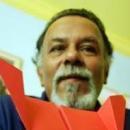
Share this Profile
Reply to 's review
Enter your reply*
Your reply has been successfully submitted.
Certified
The Certified badge indicates that the Tutor has received good amount of positive feedback from Students.